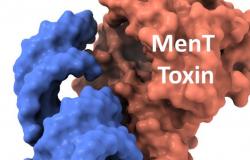THE ESSENTIAL
- On August 21, Marisa Christie, a 30-year-old American woman, suffered an amniotic fluid embolism after giving birth to her three daughters.
- This is an intense allergic reaction to amniotic fluid after childbirth. It requires immediate treatment, because “it is fatal in 80 to 85% of cases”.
- In the case of the mother, who did not remember giving birth after a week in a coma, a hysterectomy was performed so that she could stay alive.
“It was the most difficult moment of my life, going from the most beautiful experience of seeing our little girls for the first time, to seeing my wife receiving CPR.” This is what the channel said KBTXDylan Christie. The latter is the spouse of Marisa Christie, aged 30 and already the mother of a little boy. The Tomball, Texas, resident learned several months ago that she was pregnant with triplets after receiving an ovulation-inducing injection, helping the eggs mature to promote pregnancy.
While at the time of delivery, for which a cesarean section was scheduled at the hospital, everything seemed to go smoothly, things ultimately did not go as planned after the fetal expulsion. On August 21, at 33 weeks pregnant, “The doctors had removed all three babies. They were actually putting them on my stomach to perform a delayed umbilical cord clamp. My arms went up and that’s when my heart stopped,” told, to USA Todaythe mother of the family. In detail, Dr Ricardo Mora, an anesthesiologist, noticed that she was convulsing. “She was pale, even gray. I knew something terrible had just happened.”
Amniotic fluid embolism, an intense allergic reaction to amniotic fluid after childbirth
Having been faced with this situation before, the specialist quickly realized that Marisa was suffering from a rare post-natal complication called “amniotic fluid embolism”. This happens when a fetal substance passes from the baby’s circulation to the mother’s. “Recent studies show that what’s happening is a sort of anaphylactoid, which is an allergic reaction but not to a protein that mothers are exposed to, which causes a bunch of different problems.” explained Dr. Amber Samuel, gynecologist who delivered the American.
According to Dr. Ricardo Mora, this rare event occurred at the time of separation of the placenta and uterus. “The body responds by blocking blood flow. This is called disseminated intravascular coagulation. You immediately produce a bunch of blood clots, but you also start bleeding everywhere. (…) All organ systems are in breaking down, so we need people to take care of each of these systems.” added the gynecologist.
“The likelihood of this happening to a mother is incredibly low,” she continued. For the moment, practitioners do not know the exact cause of amniotic fluid embolism. “It’s a bit like being struck by lightning. Unfortunately, it happens to some people sometimes.” Although these cases are rare, healthcare professionals know that they constitute a medical emergency. “It’s quite catastrophic. When it happens, it’s fatal in 80 to 85% of cases. (…) You have to have access to blood products, have access to ECMO (a device that works for the heart and lungs to help the body recover), these things are vital to survival.”
Traumatic childbirth: “How could I not remember having my children?”
In Marisa’s case, the doctors reacted quickly. “She was no longer breathing. We started CPR because she no longer had a pulse.” At the same time, a cardiothoracic and vascular surgeon was preparing to place her on ECMO. As Dr. Amber Samuel tried to close her uterus to stop the bleeding, her blood kept being replenished. “She lost what we consider to be her total blood volume. So for 45 minutes she was clinically dead.”said Dr. Ricardo Mora.
While the 30-year-old was subsequently placed in the intensive care unit, her condition, which had stabilized, deteriorated again due to bleeding from the uterus. To save his life, practitioners had to remove this organ. Then placed in a coma for a week, she was confused when she woke up. “My husband told me our babies were healthy. But, I was absolutely terrified because I don’t remember giving birth. How could I not remember having my children?” the Tomball resident said. Nine weeks after giving birth, her hysterectomy wound has finally healed. “I have become stronger, but I have also changed a lot because a traumatic experience like that changes the way you see things.”






